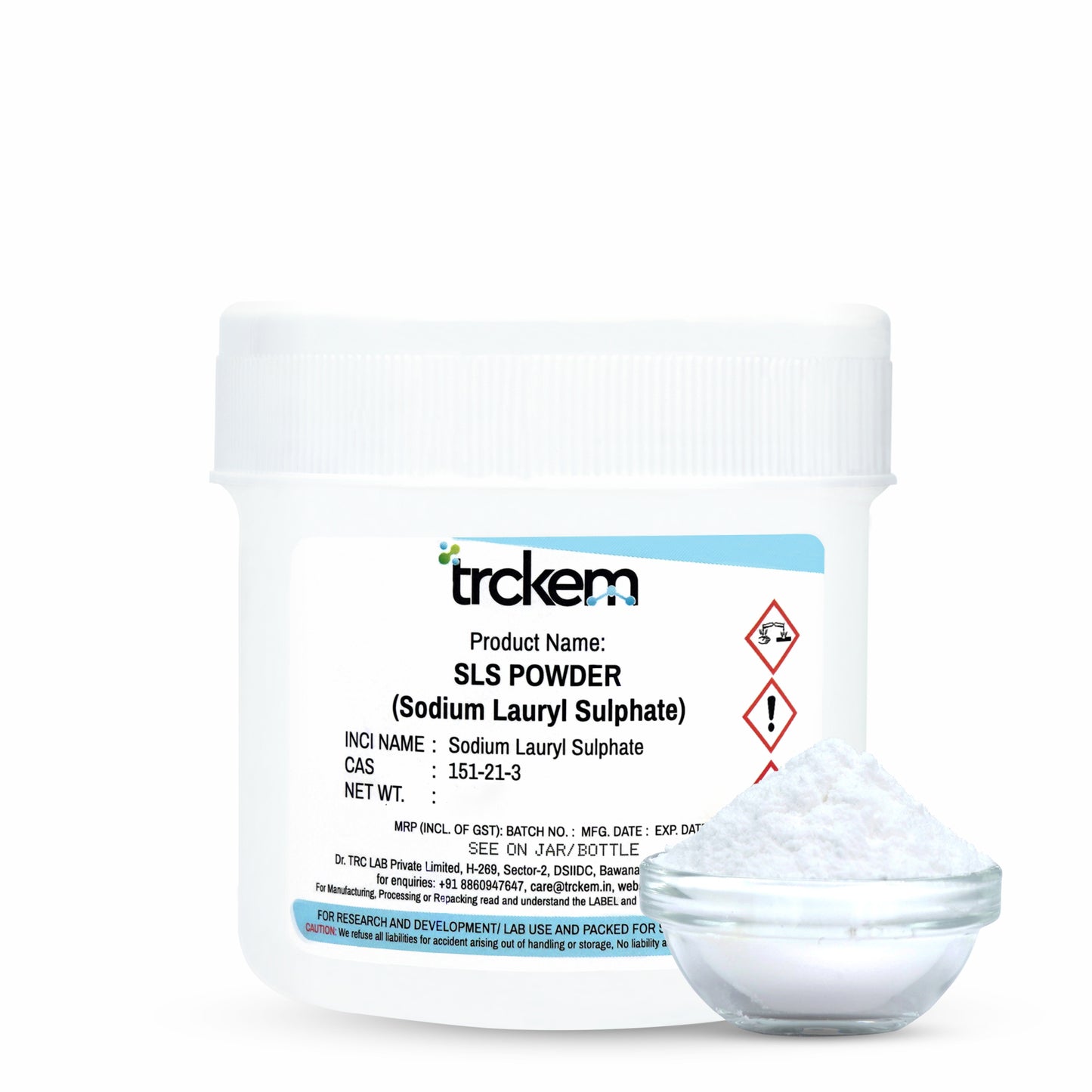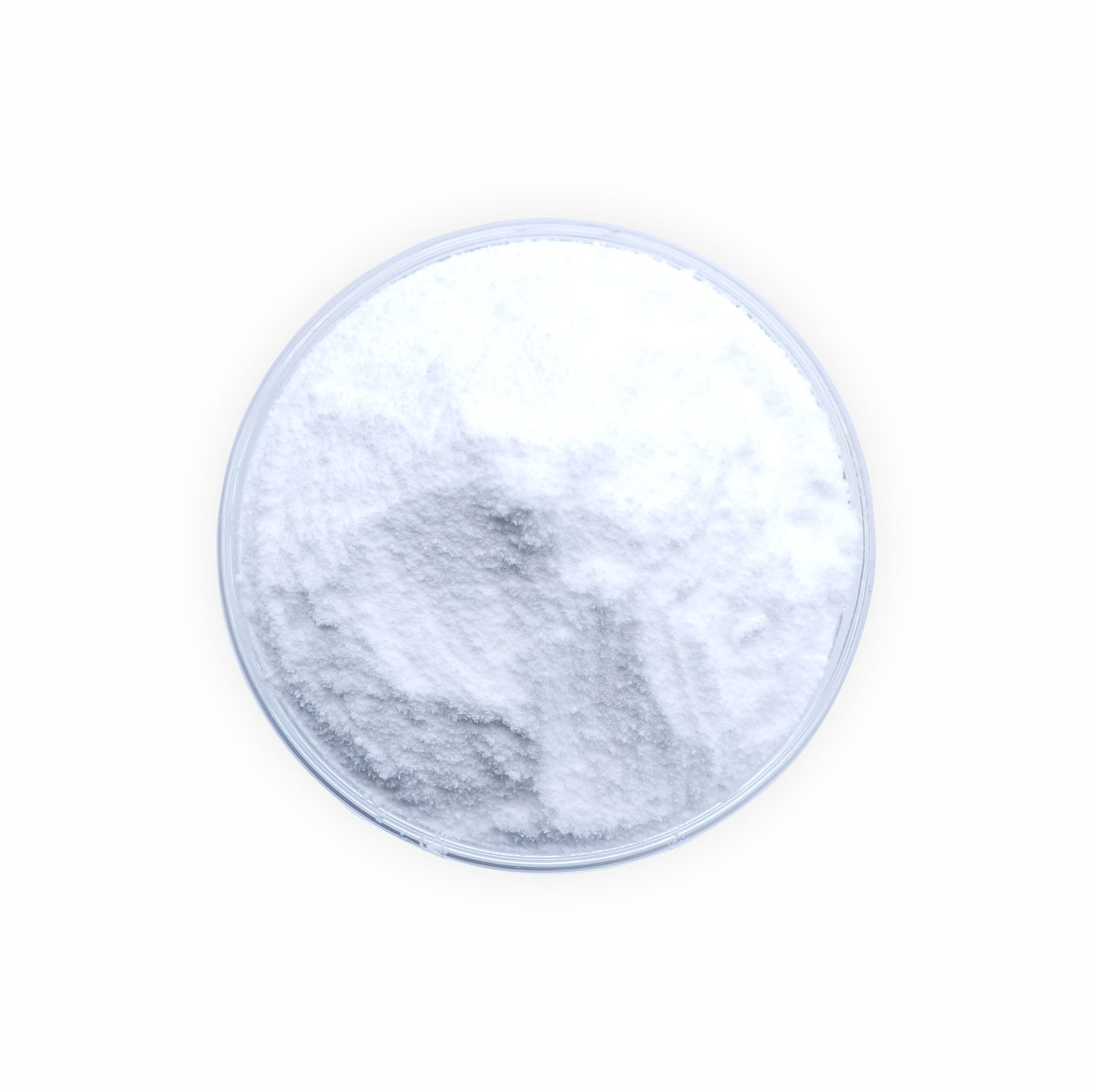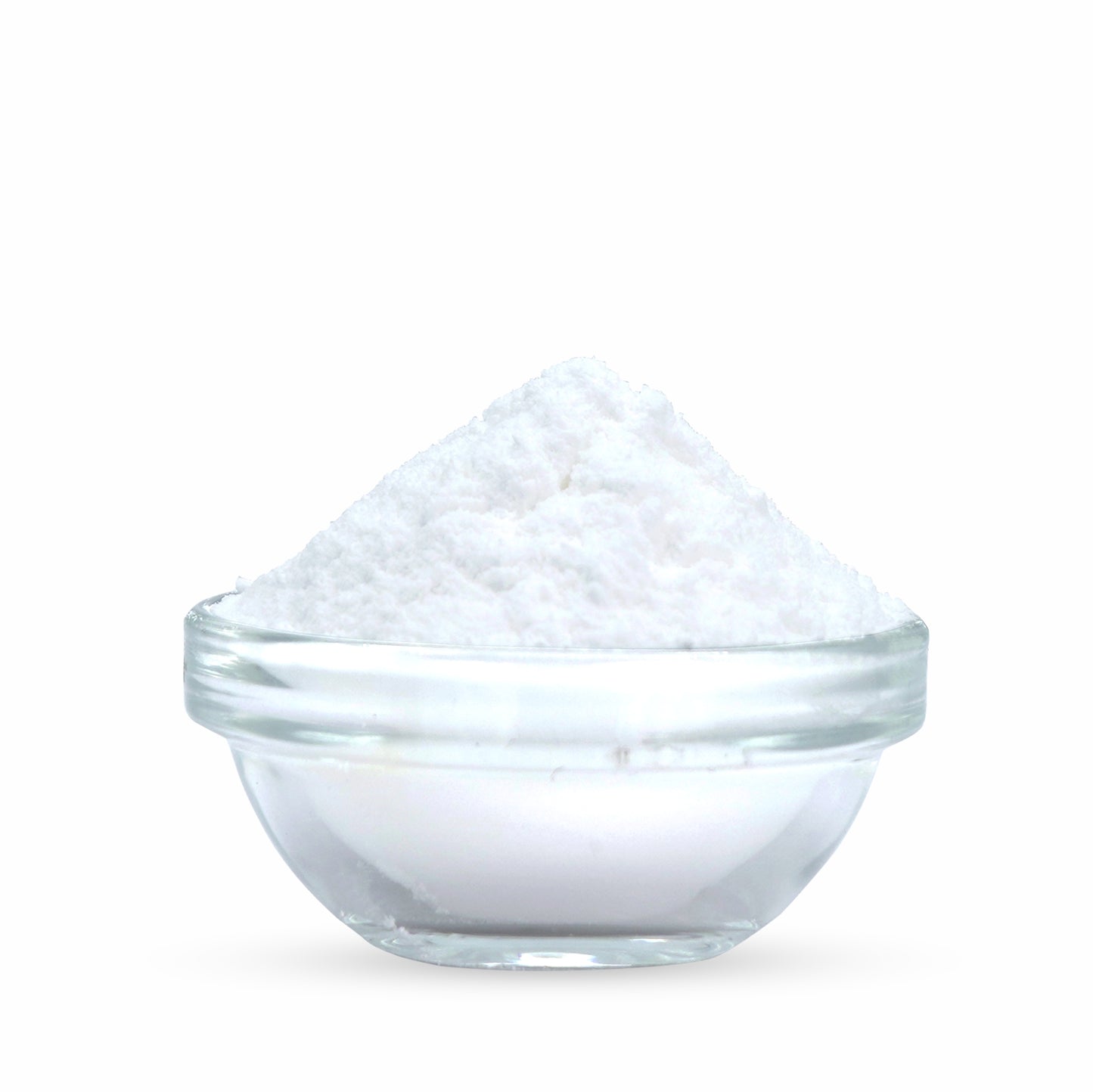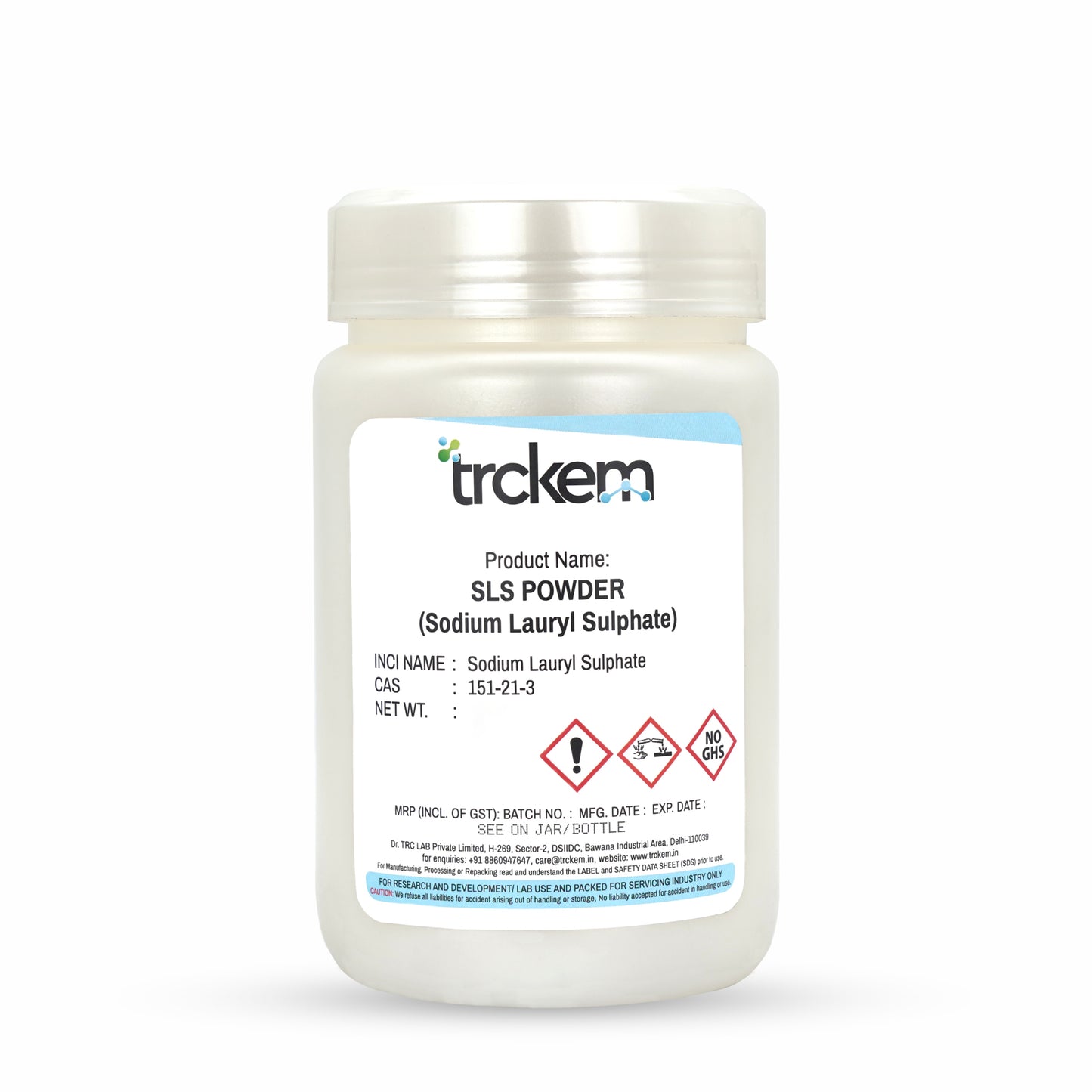




Formulator’s Queries, We Answered
1. What is SLS Powder?
SLS (Sodium Lauryl Sulfate) Powder is a surfactant widely used in personal care and cosmetic products for its excellent foaming and cleansing properties. It helps remove dirt, oil, and impurities from the skin and hair, making it a common ingredient in shampoos, body washes, and cleansers.
2. What is the CAS Number and INCI Name of SLS Powder?
CAS Number: 151-21-3
INCI Name: Sodium Lauryl Sulfate
3. What are the benefits of SLS Powder in personal care products?
SLS Powder provides several key benefits, including:
- Powerful Cleansing Action: Effectively removes dirt, oil, and impurities.
- Excellent Foaming Properties: Creates a rich lather in shampoos and body washes.
- Emulsifying Ability: Helps mix oil and water in formulations.
- Cost-Effective: A widely available and affordable surfactant.
- Enhances Product Texture: Improves the feel and application of cleansing products.
4. In which personal care products is SLS Powder commonly used?
SLS Powder is commonly found in:
- Shampoos and conditioners (for cleansing and foaming)
- Body washes and shower gels (to create a rich lather)
- Facial cleansers and scrubs (for deep cleansing)
- Toothpaste and oral care products (for foaming action)
- Hand soaps and liquid detergents (to remove oil and dirt effectively)
5. Is SLS Powder safe for skin?
SLS Powder is generally safe when used at appropriate concentrations in rinse-off products. However, some individuals with sensitive skin may experience irritation or dryness with prolonged use.
6. Can SLS Powder be used in natural or organic formulations?
SLS Powder is a synthetic surfactant and is not considered natural or organic. However, it is commonly used in many conventional personal care formulations due to its effectiveness.
7. Does SLS Powder cause skin irritation?
In some cases, SLS Powder may cause dryness or irritation, especially for those with sensitive skin. It is often recommended to use milder surfactants for individuals prone to irritation.
8. How does SLS Powder contribute to foaming in shampoos and cleansers?
SLS Powder reduces the surface tension of water, allowing it to trap air and create a rich, stable foam that enhances the cleansing experience.
9. Is SLS Powder biodegradable?
Yes, Sodium Lauryl Sulfate is biodegradable and breaks down in the environment, though it may still have some environmental impact when used in large quantities.
10. How should SLS Powder be stored?
SLS Powder should be stored in a cool, dry place, away from moisture and direct sunlight, in a well-sealed container to prevent clumping and degradation.







